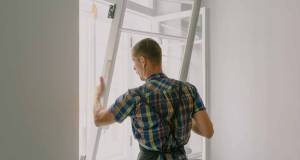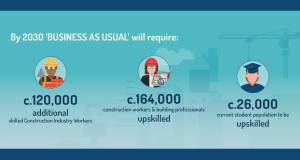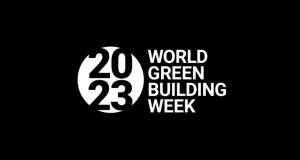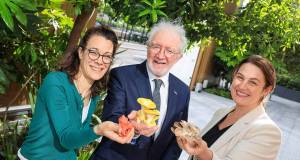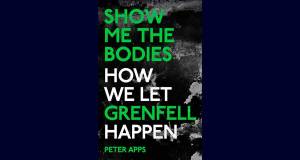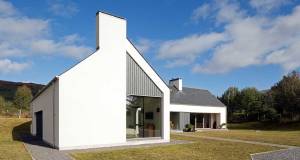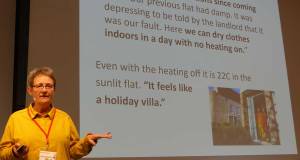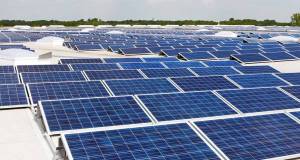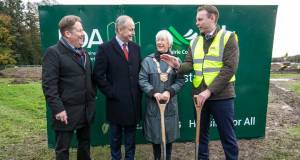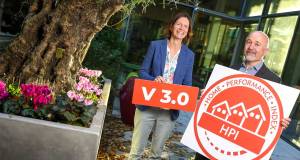Irish news - passivehouseplus.ie
Four passive house projects pick up Net Zero Energy awards
A quartet of passive house projects picked up awards at the Towards Net Zero Energy Awards 2023.
EPA launches air quality forecast
The Environmental Protection Agency (EPA) has launched a national air quality forecast to provide greater information to the public regarding expected air quality in Ireland for up to three days.
Planning guidance to cut carbon emissions previewed at IGBC conference
The implications of planning on Ireland’s carbon emissions and the importance of building climate-safe homes were discussed at the Irish Green Building Council’s (IGBC) annual residential conference, Better Homes.
EU agrees “Blueprint for the world to decarbonise building stock”
The next version of the EU Directive on the Energy Performance of Buildings (EPBD) has been provisionally agreed – including proposals for zero emission buildings, building renovation passports, a phase out of fossil fuel boilers and the introduction of whole life carbon calculation for buildings.
#BuildingLife series: Addressing the environmental impacts of buildings across their lifecycle
In this #BuildingLife Ambassador Spotlight Series, Passive House Plus is profiling leaders who have endorsed the Irish Green Building Council’s (IGBC) call to address the environmental impacts of buildings across their lifecycle.
EIB Group support new low-cost home energy upgrade scheme in Ireland
Ireland and the European Investment Bank (EIB) today reached an agreement that paves the way for government-backed, low-interest home energy upgrade loans. The agreement marks a major milestone in the development of the loan scheme which will be underpinned by resources from the EIB Group.
Chartered Institute of Building urges VAT overhaul to encourage reuse and renovation
Ireland's climate targets threatened by critical skills shortage in sector
Research, led by Technological University of the Shannon, has identified significant skills and labour shortages in the built environment sector. The study highlights how this challenges Ireland in reaching its climate targets and points out possible solutions.
Property industry faces ‘triple threat’ from climate crisis
Irish Green Building Council launch event to promote sustainable building practices
The week of live and online events will show how to accelerate our transition to a more sustainable and resource efficient built environment
Design and performance centre stage at UK Passivhaus Awards
A pioneering co-housing scheme, a cube-shaped self build, a cork and polyester- insulated retrofit to a 1970s house, a glulam timber school, and a curved college building were the winners at the 2023 UK Passivhaus Awards.
Construct Innovate welcomes thirty-five companies as first members
Construct Innovate, the University of Galway- hosted national research centre for construction technology and innovation, has announced Technological University Dublin as a new academic member and thirty-five companies as the first associate members.
IGBC launches biodiversity building professionals network
NSAI Agrément director suspended
Seán Balfe, director of NSAI Agrément, has been suspended, Passive House Plus understands.
EU project aims to accelerate market for green homes
UN pushes for radical sustainable building action
Ireland joins whole life carbon data initiative
Ireland is to participate in a pioneering European initiative aiming to boost the availability of quality building whole life carbon data, a critical step towards full decarbonisation.
Show Me the Bodies: How We Let Grenfell Happen
Scotland to mandate passive house for new homes
Must listen: Zero Ambitions Podcast
WorldGBC launches green building policy principles for governments
Government supported almost 27,200 home energy upgrades through SEAI in 2022
Passive house isn’t just about efficiency – it’s about social justice
The potential of the passive house standard to change the world isn’t restricted to tackling climate change – it’s about social justice too.
Solar panels to receive VAT drop in aim to boost uptake
In a bid to increase the uptake of solar technology in Ireland as families and businesses continue to negotiate the energy and cost of living challenges, the Irish government has announced they intend to drop the VAT rate on the supply and installation of solar panels to zero.
EU votes through EPBD recast
State passive house scheme breaks ground
The Land Development Agency (LDA), in partnership with Dún Laoghaire-Rathdown County Council, has broken ground on the largest public housing scheme in the state in recent years – a passive house scheme at Shanganagh in Shankill, Co Dublin.
New technology centre to break barriers to construction innovation
The Tánaiste and Minister for Enterprise, Trade and Employment, Leo Varadkar, TD, has launched Construct Innovate – a new Enterprise Ireland Technology Centre hosted at University of Galway which may play a key role in the transition to sustainable building in Ireland.
Roadmap targets embodied and operational carbon
The energy used to heat, cool and light our buildings is responsible for almost a quarter of Ireland’s national carbon emissions – with the carbon embodied in the buildings themselves representing over an eighth of the total, a new report has revealed.
IGBC launches updated sustainable homes rating system at Better Homes 2022
The Irish Green Building Council (IGBC) today launched a new version of its Home Performance Index (HPI) sustainable home certification system at its annual residential conference, Better Homes 2022. The focus of the event was on delivering low carbon homes at scale.



